To build an online community, define your purpose, create valuable spaces, and grow through authentic connection. Here's how to do it with Whop.
Key takeaways
- Choose a platform you control to avoid algorithm changes, ads, and restrictions that can destroy your community overnight.
- Start with a clear mission and specific audience profile to attract the right members and guide all community decisions.
- Launch to your existing audience first, then use member feedback and analytics to continuously evolve and retain engagement.
To build an online community you need to choose your niche, define your value, and pick a platform where people can connect (like Whop). From there, create spaces for discussion, add clear perks for members, and stay active to keep growing.
"There's creators making 2k, 5k, even 20k per month on Whop — and they're doing this just be creating small digital communities. All you really need is a phone and wifi"
An online community isn’t just a chat space, it’s a growth engine. Whether you run a SaaS, a YouTube channel, or a small brand, a strong community can increase revenue, speed up product development, and strengthen your reputation.
In this guide, you’ll learn exactly how to build an online community from scratch, from choosing your niche and setting up your space to keeping members engaged and monetizing your audience.
Building your online community in 9 steps
1. Define your community’s purpose
Start with a clear mission. Ask yourself: what’s this community for, and who’s it built to help?
Write a short mission statement that explains your community’s goal, who it’s for, and what members get out of joining. Something like, “Helping new traders master a system that lets them earn from home,” is simple but powerful — it tells people exactly what to expect and why it’s worth their time.
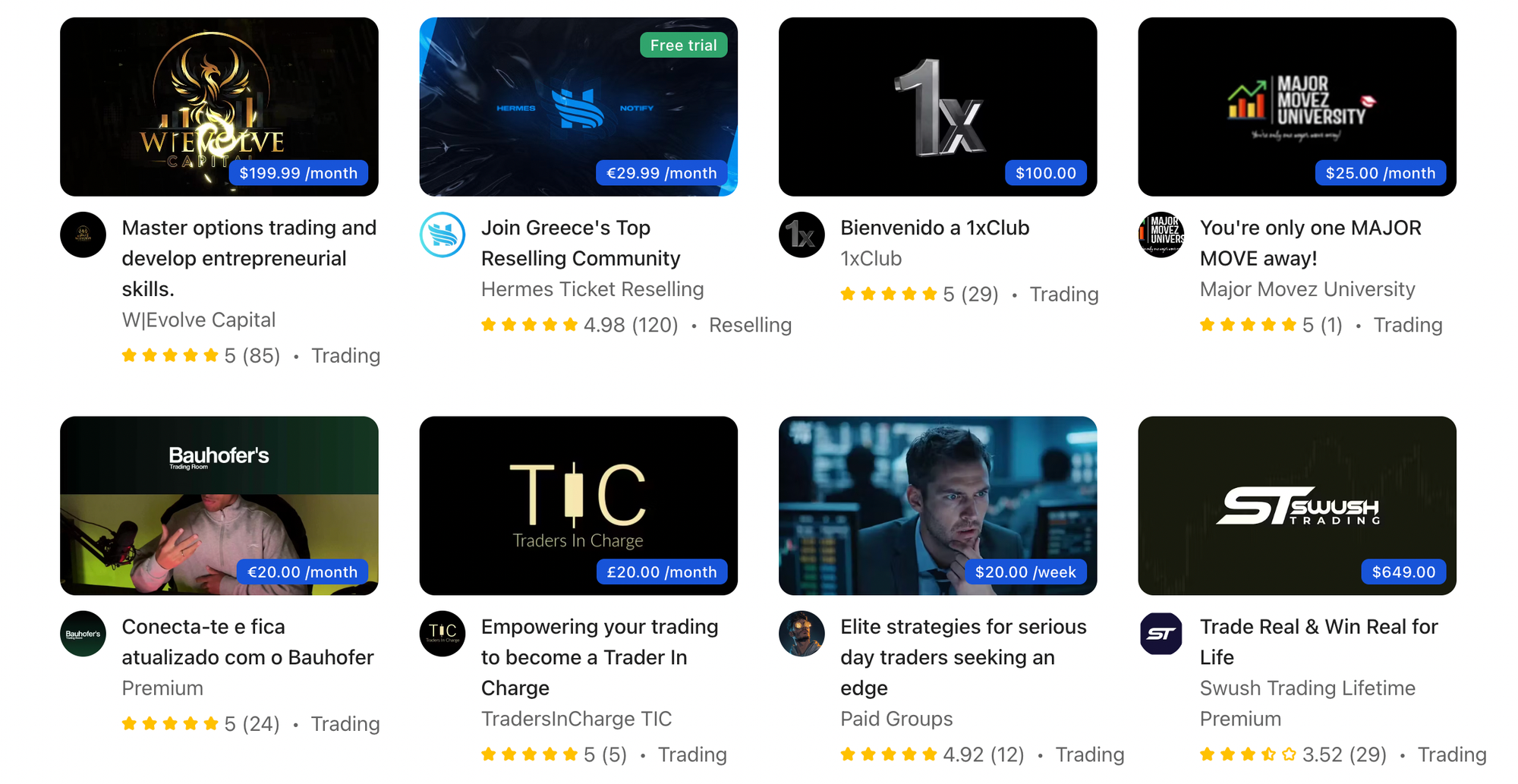
On Whop, top creators do this well. Their communities make the purpose obvious right from the start with their offer headline, whether it’s “Learn to go viral on TikTok” or “Earn five figures a month reselling.”
A defined purpose keeps your community focused, helps you attract the right members, and makes it easier to grow over time.
2. Identify your target audience
Know exactly who your community is for. The more specific you are, the faster it’ll grow.
Start by creating a simple audience profile — who they are, what they care about, and what they want from being part of your community. Think beyond demographics. What motivates them? What challenges are they trying to solve? Do they want to become a better trader? Or are they looking to find new, exciting ways to trade?
This clarity helps you design a space they’ll actually want to join. For example, if you’re teaching job seekers, your audience research might show that many already have jobs but want promotions — meaning they’re willing to invest in premium guidance. Insights like that can shape your pricing, perks, and content.
Also, talk to a few “alpha” members, aka the early adopters or people deep in your niche. They’ll help you understand the culture, language, and mindset of your audience better than any survey can.
3. Outline your community structure
Decide how your community will run before you launch.
Start with your own role — how hands-on do you want to be? Many creators begin by managing everything themselves, but as your group scales, you’ll need help. Bring on moderators or a community manager early to handle member requests and keep discussions healthy.
Map out the key roles and spaces in your community like where people talk, where they learn, where they get support. If you’re hosting on Whop, built-in customer support tools can save you time while keeping your members cared for.
Finally, loop in anyone else who should be part of your community’s ecosystem. This includes marketers, product leads, or collaborators who can engage directly with members and learn from them.
4. Set out guidelines and rules
Rules keep your community safe and focused. Write a short set of guidelines that define how members should interact, what’s off-limits, and how moderators enforce the rules. Make them easy to find and simple to understand — things like “stay on topic,” “be respectful,” and “no spam or hate speech.”
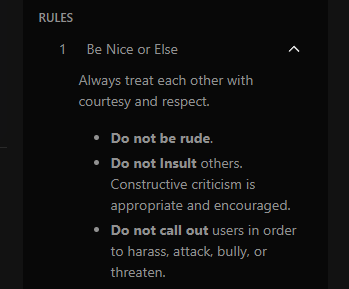
If you have moderators, outline what they can and can’t do to avoid confusion later.
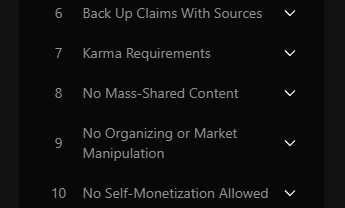
Good rules protect your space and your brand. They create the kind of environment people want to return to.
5. Choose a community platform
There are so many community platforms to choose from. Discord, Reddit, Facebook Groups and Telegram are just a few of them. Each platform has its perks, but also serious trade-offs.
Free social platforms are easy to start on and come with built-in audiences, but they also come with rules, ads, and limits you can’t control. You can’t fully monetize, customize, or guarantee stability. A single policy change or ban can wipe out your hard work overnight (trust me, I've seen it happen more than once). On top of that, your members can be distracted by ads, DMs, or competitor groups.
That’s where Whop comes in. It gives you everything social platforms don’t: ownership, control, and freedom to monetize.
Whop lets you build your own community space. You can add the exact features you need: chat, forums, live streams, courses, exclusive perks — all under your brand. You stay in control of pricing, membership access, and community experience.
It’s free to start and only takes a small cut when you get paid. Whop also handles payments and customer support for you, with response times under three minutes and a 97% satisfaction rate.
Plus, you can list your community in Whop’s marketplace to reach new members without relying on algorithms.
6. Set up your online community
Ready to build your online community? Here's how to do it with Whop.
First,you need to have a whop. A whop is the home of your online business - or in this case, your online community.
Once you’re on the onboarding page, you’ll complete five quick steps:
- Choose your business model (paid group)
- Select your industry
- Share how you plan to use Whop
- Pick your country
- Enter your community name
After that, you’ll be guided through creating your own whop.
After creating your whop, it’s time to set up your community. This means adding apps and configuring your store page.
- Add apps : Take a look at the apps on the Whop App Store and decide which ones your community needs. At a minimum you will need the 'chat' app.
- Set up store page: Apps added, it’s time to set up your whop's store page. This is the public page of your community. Here you can share information about your community, the apps it uses, and everything someone needs to know about your community.
7. Market your community
Once your community is built, it’s time to get people in the door.
Start with your existing audience — customers, followers, newsletter subscribers, or even your personal network. Let them know what’s coming early. Tease the launch, build anticipation, and gather feedback as you go.
If you’re starting from scratch, focus on growing an audience in parallel — email list, social followers, or partnerships with creators in your niche. Use every channel you have to drive attention to your whop. The more people who hear about it before launch, the faster it grows after.
Remember: your best marketing tool is your members. Encourage early joiners to share the community, offer referral perks, and turn engagement into organic growth.
8. Launch your community
Now it’s go time. You can either go soft launch or full launch, both have their place.
A soft launch is smart if you want to test things first. Open your doors to a small group — maybe your team, a few trusted followers, or a limited region — to fix any friction before scaling up. Think of it as your beta round: collect feedback, polish the experience, and get testimonials ready.
When you’re ready to go public, go all in. Announce it across your socials, email list, and any channels where your target audience hangs out. Podcasts, YouTube collabs, and guest features can be powerful for exposure as they lend credibility and drive high-intent traffic fast.
Whop makes this part easy. You can go live instantly, accept payments from day one, and attract new members straight from the marketplace.
9. Adjust, adapt and keep growing
The work doesn't end once you launch.
"The downfall of most communities is when you start doing big numbers and stop doing the things that got you there. You have to remember to stay humble and invest in the people that built it with you—they are the most important members of your community and the ones who will continue to grow it."
-Jordan Kilgour, XFACTR
Engagement will ebb and flow, so stay close to your members. Ask for feedback, run polls, and keep your content or perks fresh. If your community becomes stale, people stop sharing.
Use data to guide your decisions too. On Whop, analytics show you which offers and features drive retention and revenue, helping you double down on what’s working.
Communities that last are the ones that evolve. Keep learning from your members, refine your structure, and stay active.
If you want to see more tips on building and managing online communities, check out a real-life example of what a community owner with over 6,000 members learned over their 7 year long journey.
Types of online communities
Now you know how to create an online community — but what type of community are you going to create? Here are the most common formats — and how they work on Whop:
Learning communities
These bring people together around shared education goals. Perfect for creators selling courses, coaching, or skill-based offers, because they turn passive lessons into active learning. Members can ask questions, share progress, and help each other grow.

Take a look at Data Engineer Academy. Christopher Garzon created this community to prepare people for data engineering jobs.
On Whop, you can link your course directly to your community space for built-in discussion, feedback, and upsells.
Brand communities
These unite customers, partners, and fans around a shared brand experience. They build loyalty, retention, and word-of-mouth growth.
Members get insider access, support, and connection; you get insight into what they want next.
Interest-based communities
These form around shared passions or hobbies — fitness, sports, gaming, trading, fashion, you name it. They’re often niche but high-energy, built around people who care deeply about the same thing.
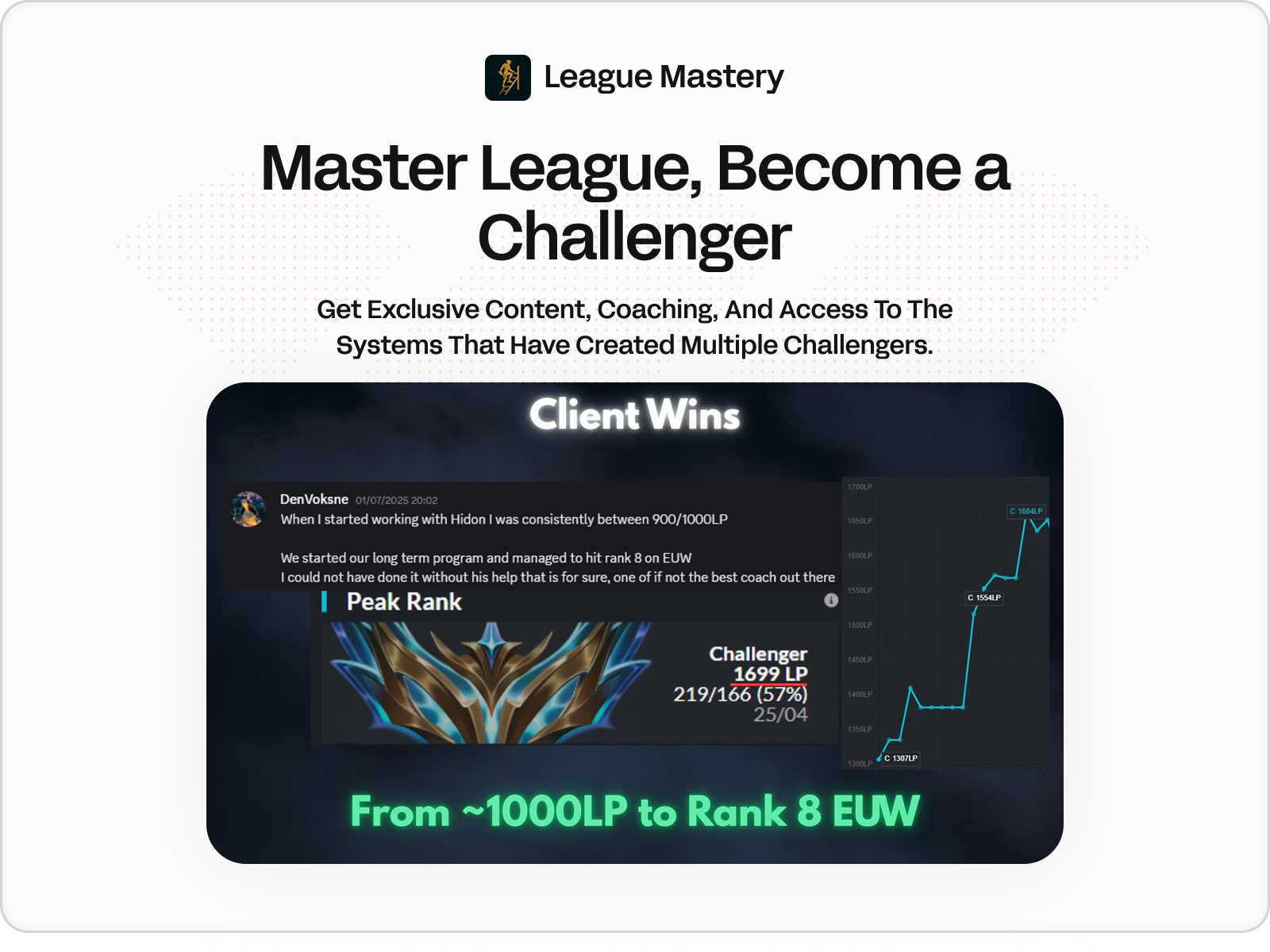
One example is League Mastery, led by multi-season Challenger coach Hidon. With over seven years of pro experience, Hidon gives players the strategies they need to reach Challenger.
Action communities
These are built around a shared mission or movement, often driving social, political, or cultural change. Whether it’s advocacy, awareness, or collaboration, these spaces rally people around a purpose.
Geographic communities
These focus on a location — like expat groups, city-specific hobby clubs, or travel forums. They connect people through place and experience.
Professional or practice-based communities
These help people in the same field connect, share insights, and grow their skills. They’re especially common in industries where networking and peer learning are crucial.
Hold My Hand Wholesale is an example of a professional community that gives real estate investors everything they need to wholesale properties and buy rentals using creative financing.
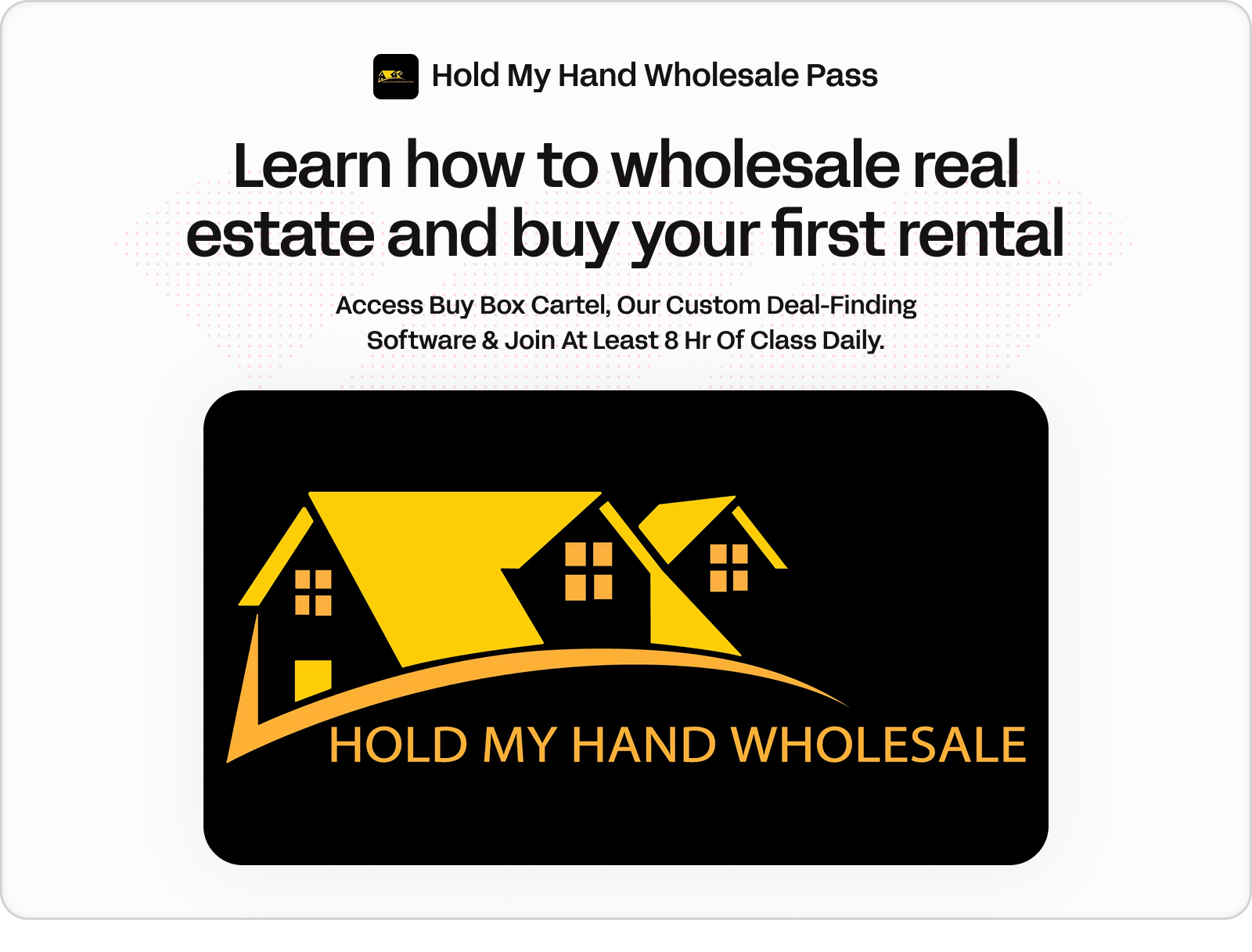
Most social platforms support these community formats, but many restrict how you can monetize or communicate. Some ban paid memberships, limit content types, or run ads that pull your audience’s attention elsewhere.
Whop removes those limits. You can run any type of community, charge for access or perks, and stay fully in control — with no ads, no random restrictions, and built-in tools to grow and monetize your space.
Why Whop is the best place to create, launch, and grow your online community
An online community can transform your business. It turns followers into loyal customers, creates space for real connection, and gives you instant feedback that helps your brand grow faster.
Whether you’re a local business, a digital creator, or an influencer building new income streams, a thriving community keeps your audience close and engaged.
Whop gives you everything you need to make that happen. You can host any type of community — free or paid — and customize it exactly how you want. Add chats, courses, events, or giveaways. Share content, manage members, and process payments in one place.
If you’re serious about building a community you actually own, start it on Whop.
FAQs
Who should build an online community?
Anyone with an audience, skill, or shared passion can build a community. If you create content, sell a product, teach, coach, or run a brand, a community helps you deepen relationships and create long-term loyalty.
Communities work especially well for:
- Creators who want to connect directly with fans or students.
- Brands looking to improve customer retention and feedback loops.
- Entrepreneurs building paid memberships or mentorship spaces.
- Hobbyists who want to bring people together around a shared interest.
If you have something people care about — and you want to build connection instead of just traffic — you’re ready to start a community on Whop.
Why should you build an online community?
Building an online community helps you connect directly with your audience, strengthen your brand, and open new revenue streams.
When you bring people with shared interests together, you’re not just growing numbers — you’re creating genuine connections. Members bond over common goals, share knowledge, and support each other, which keeps them engaged and loyal long-term.
A community also gives you a built-in feedback loop. You’ll learn what your audience actually wants, helping you refine your products, offers, and content faster.
And while profit might not be the only reason to start, it’s a powerful outcome. You can charge for memberships, offer exclusive content, or use your community to launch new products. Even a free group can drive sales, boost retention, and position you as a leader in your space.
How can you make a community space on Whop?
You can build any kind of community on Whop, from trading and coaching groups to creative spaces for artists, streamers, or musicians. It’s flexible, fast to set up, and designed to help you monetize what you love.
Here are a few of the apps you can use to shape your creative community:
- Forums app: Create topic-based threads where members can share ideas, ask questions, and give feedback at their own pace.
- Affiliate links app: Share your gear, tools, or favorite products through affiliate links and earn from recommendations.
- Files app: Sell or share your creative work — like prints, designs, sound packs, or templates — directly with members.
- Content app: Post exclusive content, behind-the-scenes updates, or blog-style posts right inside your Whop space.
- Courses app: Teach your craft with Whop’s full-featured course builder. Upload lessons, track progress, and bundle access for your community.
You can add multiple versions of each app, rename them, and organize your space however you want.
How can I grow my online community?
Growth comes from consistency, value, and connection. People stay and bring others when they genuinely get something out of being part of your space.
Stay active and present. Post regularly, respond to members, and keep conversations going so your community feels alive. Make your members feel seen and appreciated by rewarding engagement and giving them reasons to come back.
Promote your community across your other channels too. Share it through your email list, social media, or YouTube so your wider audience knows where to connect with you directly. Collaborations also help — partnering with other creators or communities in your niche can expose you to new, like-minded audiences.
Most importantly, keep listening. The best growth happens when you adapt based on what your members want. On Whop, you get the tools to do exactly that — with built-in analytics, marketplace visibility, and an easy way to manage engagement all in one place. The more value you create inside your Whop, the faster it grows.
How do I know if my community is successful?
Success looks different for every community, so start by defining what it means for you. Not every community needs to make money to be successful, some exist to build brand trust, support customers, or connect people with shared goals.
Set clear benchmarks early on so you know what you’re working toward. For example:
- A brand community might track Customer Satisfaction Score (CSAT) or Net Promoter Score (NPS) to measure loyalty and happiness.
- A creator or learning community might look at engagement, completion rates, or repeat memberships.
- A free or mission-based community might focus on participation, collaboration, or member impact.
Whatever your goals, the key is to have metrics that show whether your community is growing in the right direction.
Whop’s built-in analytics make this easy — you can see engagement, retention, and earnings data all in one dashboard. That way, you can quickly measure what’s working, adjust what’s not, and keep your community moving toward success.



